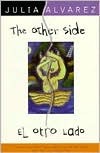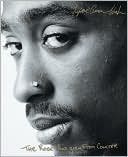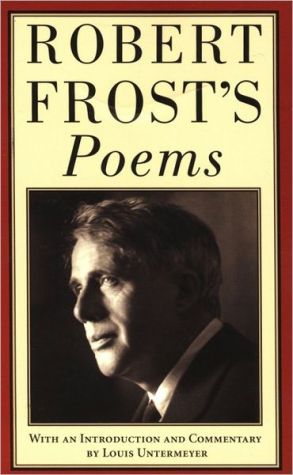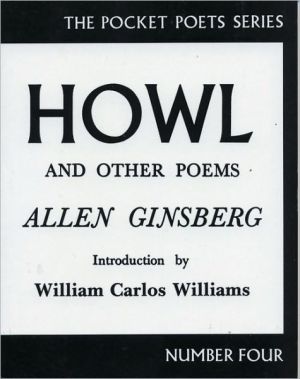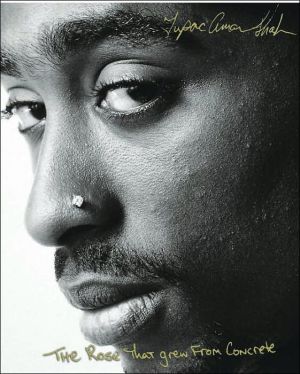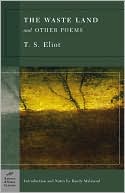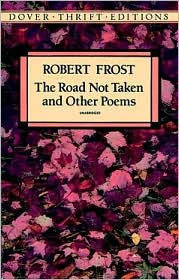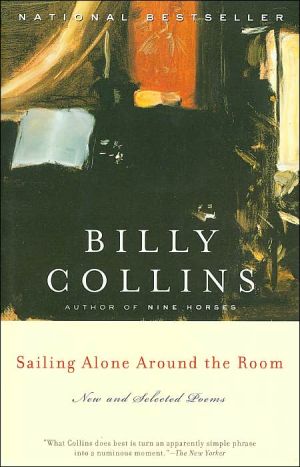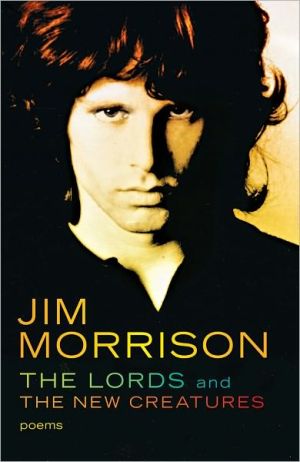The Other Side/El otro lado
La revisión de libro de los tiempos de Nueva York ha elogiado la ficción de Alvarez's mientras que "powerful... captura maravillosamente la experiencia del umbral del nuevo inmigrante donde no está todavía una memoria el pasado y el futuro sigue siendo un dream." ansioso; Estas mismas calidades caracterizan su poes'a - del "Making encima del Past" poemas, que exploran una vida del exilio según lo vivido por una muchacha joven, a los poemas de Joe del "The, " una serie maravillosamente de...
Search in google:
The New York Times Book Review has praised Alvarez's fiction as "powerful...beautifully captures the threshold experience of the new immigrant where the past is not yet a memory and the future remains an anxious dream." These same qualities characterize her poetry - from the "Making Up the Past" poems, which explore a life of exile as lived by a young girl, to "The Joe Poems," a series of wonderfully sensual and funny love poems celebrating a middle-aged romance. The collection culminates in the twenty-one-part title poem about the poet's return to her native Dominican Republic and the internal conflict and ultimate affirmation that journey occasioned. Bold innovation and invention, the interplay of sound, sense, and the rhythm of two languages, all characterize Julia Alvarez's art in transforming precious memory into unforgettable poetry.Publishers WeeklyWidely known for her novels, How the Garcia Girls Lost Their Accents and In the Time of the Butterflies, Latina author Alvarez claims her authority as a poet with this collection. Tracing a lyrical journey through the landscape of immigrant life, these direct, reflective and often sensuous poems are grouped into five sections which, like the points of a star, indicate a circle. Alvarez begins with ``Bilingual Sestina,'' a meditation on leaving her native Dominican Republic for an alien land and strange language. She ends with the title poem ``The Other Side/El Otro Lado,'' a long, multipart narrative recounting her return to her homeland as a woman transformed-translated-by the years she has lived in America from native to guest. The speaker may claim ``There is nothing left to cry for,/ nothing left but the story/ of our family's grand adventure/ from one language to another,'' but this poetry resonates precisely because that story embodies larger questions about self-identity. A meticulous examination of self-evolution, Alvarez's assured collection reveals that change can take us across borders so slowly that only on reaching the other side can we see the distances we've come. (June)
Bilingual Sestina3Audition7Gladys Singing10Mami and Gauguin12Grace15Proof18Abandoned20Exile25Papi Working29Queens, 196331New World34Sound Bites39On Not Shoplifting Louise Bogan's: The Blue Estuaries45Between Dominica and Ecuador48Beginning Again52Making Up the Past55First Love Letter61Touchstone64Going Back to Sleep68Bookmaking71Anatomy Lesson74Monkey Business79The Last Love Story84Missing Missives89Staying Up Alone93You Remember the Definitions, Not the Words98Home Fires102I drove up in Mami's Mercedes109Down that mountain, Mike and I hike111Mike and I tour Boca113I hadn't fit into any of the stories116Mike and I pretend we're married117Boca's mayor calls Mike over118"We also die," says Nana120Clairol, the youngest of Nana's girls122El profesor Juan Bautista123The shy schoolgirl in pigtails125The little house is closed up128"Tell me," I ask Miguel Angel130At his bodega, Leo sells everything132Mike and I have our best talks134Our brief trip to the capital135"Who you love? Who you love?"137The old man sleeps like the dead138One of los muchos140I've met everyone in Boca143My last afternoon in Boca145I hear Papito calling148Estel153
\ Publishers Weekly - Publisher's Weekly\ Widely known for her novels, How the Garcia Girls Lost Their Accents and In the Time of the Butterflies, Latina author Alvarez claims her authority as a poet with this collection. Tracing a lyrical journey through the landscape of immigrant life, these direct, reflective and often sensuous poems are grouped into five sections which, like the points of a star, indicate a circle. Alvarez begins with ``Bilingual Sestina,'' a meditation on leaving her native Dominican Republic for an alien land and strange language. She ends with the title poem ``The Other Side/El Otro Lado,'' a long, multipart narrative recounting her return to her homeland as a woman transformed-translated-by the years she has lived in America from native to guest. The speaker may claim ``There is nothing left to cry for,/ nothing left but the story/ of our family's grand adventure/ from one language to another,'' but this poetry resonates precisely because that story embodies larger questions about self-identity. A meticulous examination of self-evolution, Alvarez's assured collection reveals that change can take us across borders so slowly that only on reaching the other side can we see the distances we've come. (June)\ \ \ \ \ Library JournalAlvarez (author of one of LJ's Best Books, How the Garcia Girls Lost Their Accents, LJ 5/1/91) writes poems as impressive as her fiction. In the opening sequence, writing of a loving maid and governess, she portrays with graceful simplicity the world of haves and have nots suggested in the duality we find in the title. Whereas poets from similar backgrounds-uprooted, mocked-write bitterly of the past and ambivalently of the future, Alvarez optimistically sets about "Making Up the Past." As the poems move from childhood memories to adult realities, they become less succinct, less headed toward closure. Lines stretch out. Anger enters. The setting of the long title sequence is ironic: at an artist's colony not far from her native town, the author suffers in the midst of a lengthy writer's block as she is joined by a lover she's not sure she loves. Yet she reaches out, in the final poem, not to all the people she might have been but toward the mute girl. Recommended for all poetry collections.-Rochelle Ratner, formerly Poetry Editor, "Soho Weekly News," New York\ \
